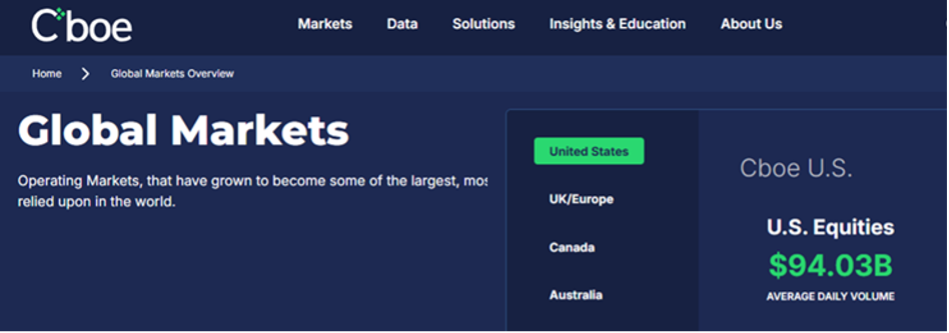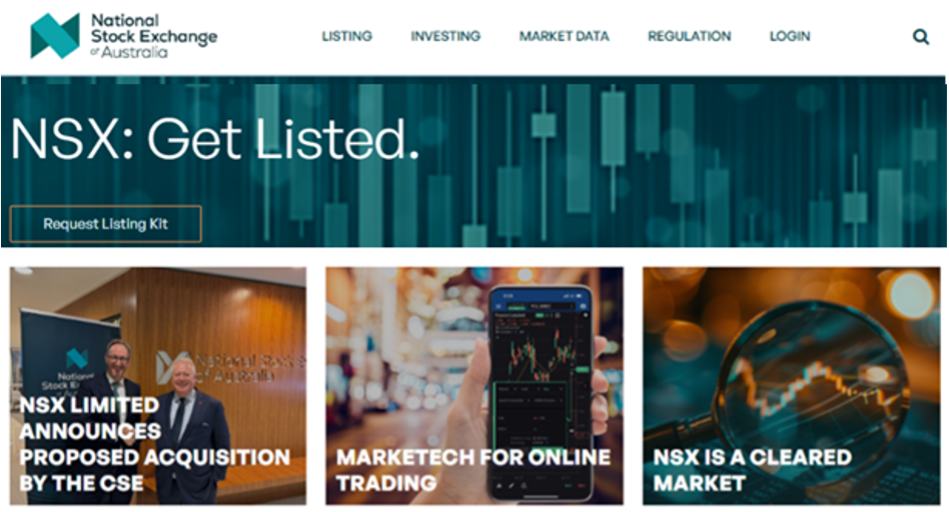GILES RAFFERTY, Corporate Communications and Media Advisor
ASIC’s approval of alternative Australian stock exchange, Cboe’s, listing application creates a significant rival to ASX for new listings. ASIC claims the approval will give investors access to more initial public offerings (IPOs), dual listed foreign entities and promote a vibrant and attractive local listing market.
Cboe was formed by the purchase of the Chi-X exchange in 2021 by Chicago-based Cboe Global Markets. To date, Cboe has focused on operating a secondary market for stocks and derivates and accounts for 20% of Australia’s equity market turnover. It has also listed 43 exchange traded funds, which are exclusively traded on its platform. Cboe’s move into new listings will be watched carefully by prospective IPO candidates and investment banks.
“Companies that list on Cboe will be exclusively traded via Cboe”
Stephanie Duncan, Head of Regional Marketing (APAC & EMEA) Cboe Global Markets
Cboe forerunner, Chi-X, entered the Australian market in 2011prompting ASX to cut its trading fees. To challenge ASX for new listings Cboe will need to demonstrate to target companies and bankers that they have a compelling offer. That may be easier said than done. ASX has had a near monopoly on IPOs for 35 years, giving it access to, by far, the largest pools of highly connected Australian investors, capital and liquidity.
To compete Cboe is likely to lean into its track record of innovation, it was first to offer cryptocurrency and fixed income exchange-traded funds (ETFs), and enhanced support services rather than going toe to toe on price with ASX. Cboe is also being very targeted and looking to list Australia companies with a market capitalisation of $30 million and above. Cboe also has the option to leverage its international network; it also operates exchanges in the US, Canada and Europe; to attract overseas companies to Australia.
Cboe to leverage its international footprint to attract overseas companies to list in Australia
Cboe’s entry into the Australian IPO market applies additional pressure to ASX, which is facing scrutiny over its botched, very expensive and ultimately abandoned attempt to use blockchain technology to upgrade its CHESS clearing and settlement platform. ASX has also faced a grilling by ASIC and Reserve Bank of Australia over a system failure that prevented trading for almost an entire day in late 2020. ASX is likely to face even greater competition around IPOs now that the owner of the Canadian Securities Exchange, CSNX Markets Inc. has completed the acquisition of Australia’s National Stock Exchange with ambitious plans to float early-stage mining companies.
NSX to become more active in early stage mining IPO’s following takeover by CNSX Markets Inc
An interesting chink in Cboe’s offering was revealed by the recent decision by ETF Shares to move three of its funds, which were exclusively traded on Cboe, to ASX. That decision was driven by a desire to ensure the funds, which offer exposure to the US based “Magnificent Seven” tech giants, are available across every major Australian brokerage and investment platform with a view to boost inflows. A spokesperson for Cboe confirmed that Companies that list on Cboe will be exclusively traded on Cboe, which may limit access to brokers operating on legacy systems that are linked to ASX but may not integrate as easily with Cboe.
The emergence of competition in the Australian IPO market will likely drive improvements in the process for listing, the support services and the price. One element to an IPO’s success that remains immutable is the need to communicate a company’s investment thesis in a concise, accurate and accessible way. FIRST Advisers combination of IR and financial media expertise, supported by in house design capabilities and a team of analysts focused on register analysis and shareholder engagement, ensures we are uniquely placed to help.

